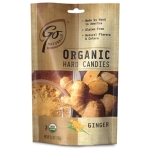Someone tagged me some time ago on Facebook and again this week, so having answered this once before, I’m re-posting this. The way the game works is to list ten titles that have stayed with you. They don’t have to be the ‘right’ books, and you shouldn’t think about it too long — just ten which have touched you and stayed with you. Then you nominate ten more people to play the game.
My problem was sticking to ten, and sticking to the ‘stayed with you in some way’, which isn’t necessarily the same thing as favourite books and authors.
Here, I’m including the list but with a variation on the theme adding explanations. Slight cheat — the first is two by one author, and there are a couple of trilogies.
In no particular order:
The Happy Prince/Picture of Dorian Gray by Oscar Wilde
The Happy Prince read as a child, and I cried my eyes out. Well, not literally and that would be gross, but yes, I sobbed. Hey, I was like nine or younger, and the first time I heard the story, someone else read it to me. It would probably still make my lips tremble. It has everything: morality, romance, heart-wrenching pain. A Picture of Dorian Gray is just one of those stories never forgotten. As is often the case, my first awareness of this tale was the old black and white film. I didn’t get to read the book until my teens, but it’s an undeniable classic.
Gormenghast (trilogy/first two books) by Mervyn Peake
Not only a story that has touched and stayed with me, it’s one of my favourites, if not ‘the’ favourite owing to the scope of imagination, the names given to the characters, but most of all the richness of the language used, something sadly lacking in most books today.
Neverwhere by Neil Gaiman
I adore this ‘other world’ below London in this urban fantasy. For Doctor Who fans, it may interest you to know that Peter Capaldi played the Angel Islington in the 1996 television series, but it is the novelisation that stayed with me. Again, I love the names given to the characters, and the idea of an ordinary man dragged into an extraordinary world, especially one beneath London.
Wraeththu (trilogy) by Storm Constantine
This is possibly the author’s most well-known and outstanding work. A futuristic fantasy of post-apocalyptic proportions told through the eyes of three characters (one per book). The story follows Wreaththu — hermaphrodite beings who are skillful with forms of magic — and their interaction with humans. Romantic, but questioning perceptions of sexuality and people’s humanity/inhumanity to each other, there’s more going on here to those with an open mind.
Snowflake by Paul Gallico
A child’s book that I’ve seen nowhere since. I last tried searching for it about five years ago, but it wasn’t available, and I think I only found one listing for it. I have no need of an actual replacement, though mine is so old and well-read, it’s now lacking a cover and is just a very thin volume of aged yellowing pages. In short, Snowflake is born, goes on many adventures, falling in love with Raindrop and then, at the dramatic conclusion, returns to the sky. It had everything for a child — adventure, romance, and even self-sacrifice. I loved (and kept) so many of my childhood books, but this is my most-loved.
Tom Sawyer by Mark Twain
My first ‘adventure’ for an older reader, and I’ve chosen it because it’s linked to the one good clear memory I have of my mother. She read it to me long before I could read it myself. She must have read it, at my request, about three times before I was able to take over. I still have the little burgundy covered book she gave me. Owing to her ill health, I don’t have many memories like that so her reading Tom Sawyer is priceless.
Knowledge of Angels by Jill Paton Walsh
Only read once, but I loved this book and remember it well. Some might see it as an argument against religion, but I think more than that it illustrates what man can do to each other using religion as an excuse. I especially like the story behind the book, that everyone turned it down, so Jill Paton Walsh self-published when it was much harder to do than it is now. It won a Booker prize — before they changed the rules to disallow self-published titles.
The Incredible Shrinking Man by Richard Matheson
It was a close call between this and I Am Legend, but this just pips it for me. My first memory of the story was once again the old black and white movie. Who can forget the battle with the giant spider? Some love spiders, some hate them, some have this strange love/hate affinity with them. I think their webs are beautiful and amazing. The spider is incredible. I just don’t want to come across one unexpectedly. In short, my earliest recollections were of that chill down one’s spine at the thought of battling a giant spider. I hadn’t read the book until recently, and likely had a preconceived notion of what to expect. The book, though accurate to the film, differs vastly in that it’s more emotional. I didn’t expect to experience so many emotions, including such sadness spliced with sympathy for the main character, in what many assume is a horror story.
Nocturnes by John Connolly
I like John Connolly’s work. I’m often perplexed by how he seems to break so many ‘rules’, particularly with his Charlie Parker novels — including both first and third person viewpoints, and even telling the story omnipresently when relating something that happened in the past. Not all writers can even manage point of view changes successfully, but it seems to suit his style, his ‘voice’. I included Nocturnes because I was surprised to come across a collection of short stories with gothic influences. They are both olde-worlde and new.
I Capture the Castle by Dodie Smith
Best known for writing One Hundred and One Dalmatians, and the sequel The Starlight Barking. Yes, 101 had a sequel, and I have both books. I Capture the Castle has one of the best opening sentences. As John Steinbeck’s end to Of Mice and Men is startling, the most memorable thing about Dodie Smith’s first novel for adults has always been the line that begins, “I write this sitting in the kitchen sink.”














